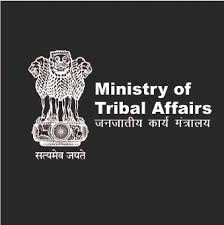Tribal Affairs Ministry, NCL Join Hands to Upgrade 42 Eklavya Schools
The collaboration will channel ₹5 crore under NCL’s Corporate Social Responsibility (CSR) to advance digital education and health infrastructure for tribal students.

- Country:
- India
In a landmark initiative to strengthen tribal education and welfare, the Ministry of Tribal Affairs, Government of India, has partnered with Northern Coalfields Ltd (NCL) to upgrade infrastructure and build capacity in 42 Eklavya Model Residential Schools (EMRS) across Madhya Pradesh and Uttar Pradesh. The collaboration will channel ₹5 crore under NCL’s Corporate Social Responsibility (CSR) to advance digital education and health infrastructure for tribal students.
EMRS: Nurturing Tribal Talent
Eklavya Model Residential Schools (EMRS) are specialized institutions established by the Ministry of Tribal Affairs to provide quality education to Scheduled Tribe (ST) children, preparing them for higher education, professional courses, and meaningful employment. Beyond academics, EMRS also focus on nutrition, health, and holistic development.
As of now, 479 EMRS are functional across the country, serving as a cornerstone of India’s tribal education framework. These schools are central to the government’s vision of empowering tribal youth through education, digital inclusion, and skill development.
NCL’s CSR Investment for Tribal Education
Recognizing the transformative role of CSR in supplementing government funding, the Ministry under the leadership of Shri Jual Oram, Hon’ble Minister of Tribal Affairs, has been mobilizing companies to invest in tribal empowerment. NCL responded to this call by allocating ₹5 crore from its CSR budget to support EMRS.
The project, to be implemented by the National Scheduled Tribes Finance and Development Corporation (NSTFDC), will provide:
-
950 computers and 950 UPS units for digital learning.
-
90 tablets to enhance e-learning capabilities.
-
430 sanitary pad vending machines and 430 sanitary pad incinerators to support menstrual health and hygiene for girl students.
This intervention is expected to benefit more than 26,000 tribal students, including 13,500 girls, creating an immediate and long-term impact on education and well-being.
Project Objectives and Impact
The initiative has two primary objectives:
-
Promoting Digital Education
-
Establishment of computer labs and provision of digital devices will help tribal students acquire 21st-century digital literacy skills.
-
Teachers and students will gain access to online learning, advanced technology, and interactive platforms.
-
The project will also strengthen existing Ministry-led programs such as:
-
Digital Tutoring for IIT-JEE and NEET.
-
Digital Transformation Program for EMRS.
-
-
-
Supporting Girls’ Health and Hygiene
-
Installation of sanitary pad vending machines and incinerators will improve menstrual health management.
-
This is expected to boost retention, attendance, and academic performance of girl students.
-
Enhanced health and hygiene support will promote gender equality in education.
-
A Step Towards Janjatiya Gaurav Varsh and Viksit Bharat
The partnership aligns with the government’s commemoration of Janjatiya Gaurav Varsh and the Prime Minister’s vision of empowering tribal communities through education and digital inclusion. It underscores the role of public-private collaboration in advancing inclusive growth and ensuring no child is left behind in the digital age.
By integrating digital infrastructure with health and hygiene facilities, the Ministry of Tribal Affairs and NCL are setting a new benchmark in CSR-driven social development. This initiative is not just about improving school facilities; it is about transforming lives, nurturing innovation, and empowering tribal youth to become leaders of tomorrow.










